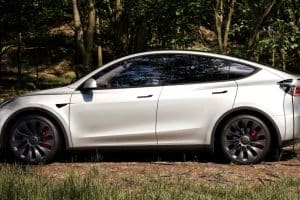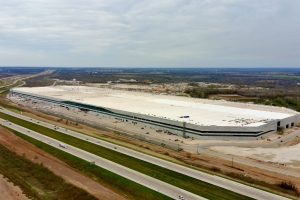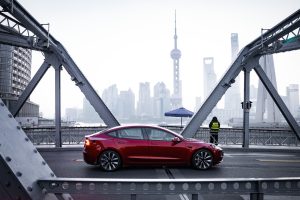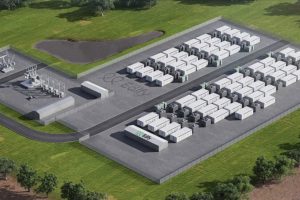Tesla is suing a recently hired software engineer who the company claims has stolen critical automated software from its WARP Drive ERP system.
Tesla WARP Drive
While most automakers use commonly known enterprise software from third parties like SAP, Tesla instead decided to build its own from scratch.
Tesla’s longtime chief information officer Jay Vijayan, who quietly left in January 2016, is credited for leading the development of the system, which Tesla calls “Warp.”
Vijayan discussed what pushed them to develop their “Warp” system in-house during an interview with CIO Insight in 2014:
Elon’s vision is to build a vertically integrated organization where information flow happens seamlessly across departments and where we have a closed feedback loop to our customers. By doing this, we can provide the best possible product, service, and overall experience to our customers in the fastest way possible, while also operating efficiently as a business to bring this vision to life, we had to have simple and central business operations software that could connect all departments and enable information flow seamlessly across departments. Again, we couldn’t find one software program in the market that satisfied this need.
Elon Musk has since pushed his companies to develop even more new enterprise engineering systems to be used across his multiple companies.
For example, we previously reported on Tesla and SpaceX sharing some custom software platform developed for materials research.
WARP englobes a lot of important backend software that automates many processes for Tesla from purchasing, to manufacturing to inventory.
Someone is trying to steal Tesla’s software
In a new case filed with the court of the Northern District of California, Tesla claims that a recently hired software engineer, Alex Khatilov, has stolen its WARP Drive software.
Tesla writes in the lawsuit:
“Tesla hired Defendant as a software automation engineer on December 28, 2020. Within three days, he began stealing thousands of highly confidential software files from Tesla’s secure internal network, transferring them to his personal cloud storage account on Dropbox, to which Tesla has no access or visibility. The files consist of “scripts” of proprietary software code that Tesla has spent years of engineering time to build. These scripts, when executed, automate a broad range of functions throughout Tesla’s business. Only a select few Tesla employees even have access to these files; and as a member of that group, Defendant took advantage of that access to downloaded files unrelated to his job.”
The automakers appears to have strong evidence that Khatilov innapropriately downloaded the scripts.
Tesla’s infosec team gained access to the engineer’s Dropbox account where they found the files that have no business being there:
“Tesla’s information security personnel detected Defendant’s unauthorized download on January 6, 2021 and confronted Defendant that day and interviewed him. During this interview he repeatedly claimed that he had only transferred a couple personal administrative documents. After being prompted, he gave Tesla investigators access to view his Dropbox account, where they discovered Defendant’s claims were outright lies: the Tesla investigators found thousands and thousands of Tesla’s confidential computer scripts in his Dropbox. Defendant then claimed he somehow “forgot” about the thousands of other files he stole (almost certainly another lie). Even worse, it became apparent that Defendant had brazenly attempted to destroy the evidence by hurriedly deleting the Dropbox client and other files during the beginning of the interview when investigators were attempting to remotely access his computer.”
Tesla employs a team of Quality Assurance Engineers who help identify business tasks to be automated based on input from Tesla’s business leaders. The engineers write computer scripts in Python (a computer programming language) to automate those tasks, and test the automated processes to ensure they function properly. These scripts are unique to Tesla and run on WARP Drive, the backend software for much of Tesla’s business.
Developing this complex system is expensive and time-consuming. Tesla has spent roughly 200 man-years of work to develop the Quality Assurance scripts – the cumulative hours spent by the Quality Assurance Engineering team over the past twelve years. The engineers’ work is also guided by the business leaders in Tesla, who identify what tasks need to be automated – another large and valuable investment of its time.
Tesla is looking for damages to be determined at trial and an injunction to block the defendant from sharing any information with other parties.
Here’s the full complaint filed with the court:
It’s not the first time that Tesla is turning to the court from protecting its trade secrets from former employees who allegedly stole important information.
Tesla sued employees that they claim stole the Autopilot source code and then went to Xpeng, a Chinese EV automaker.
The automaker also sued Zoox and it is currently embroiled in a lawsuit with Rivian over similar claims of IP theft.
Original Publication by Fred Lambert at Electrek.





